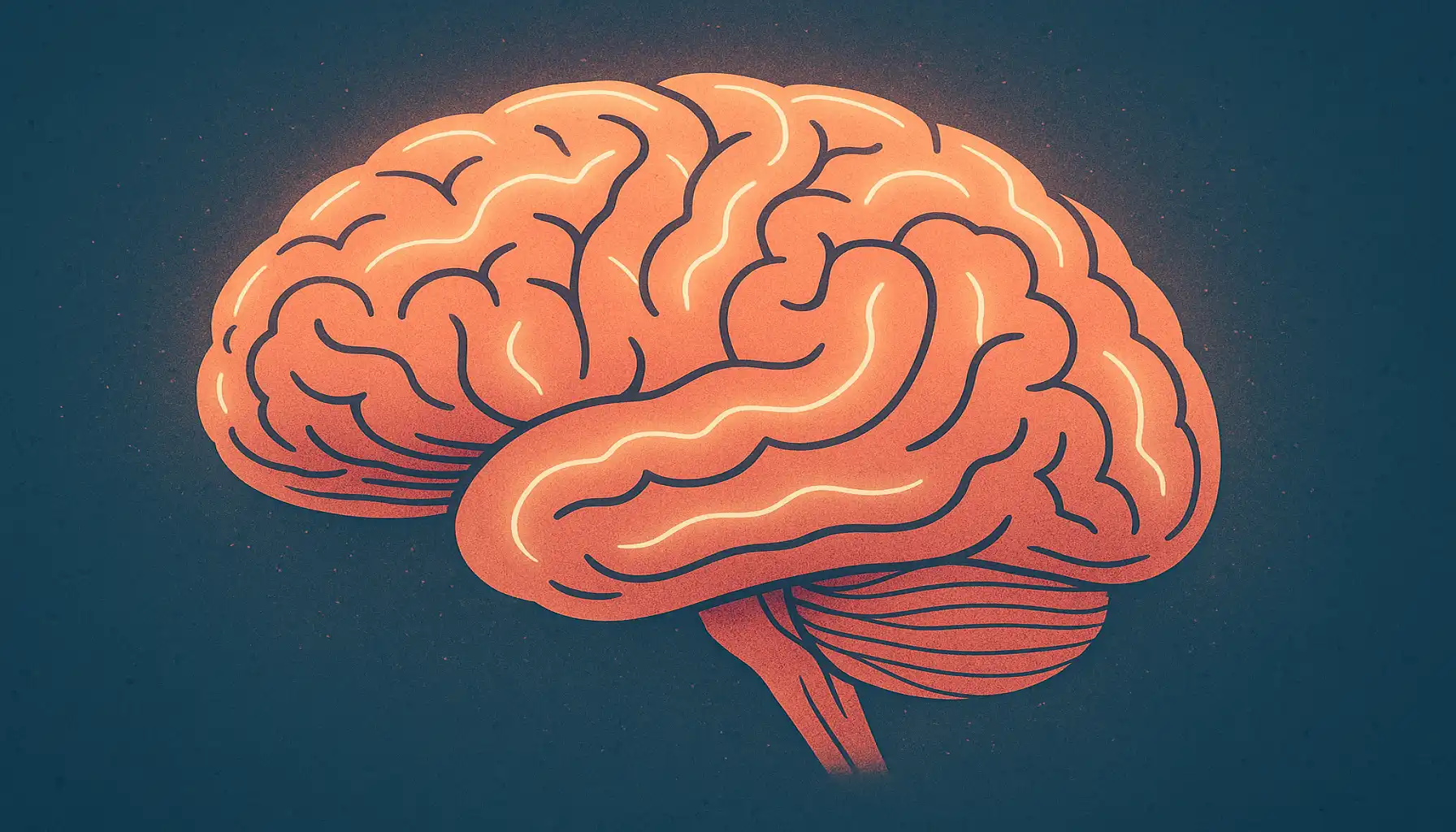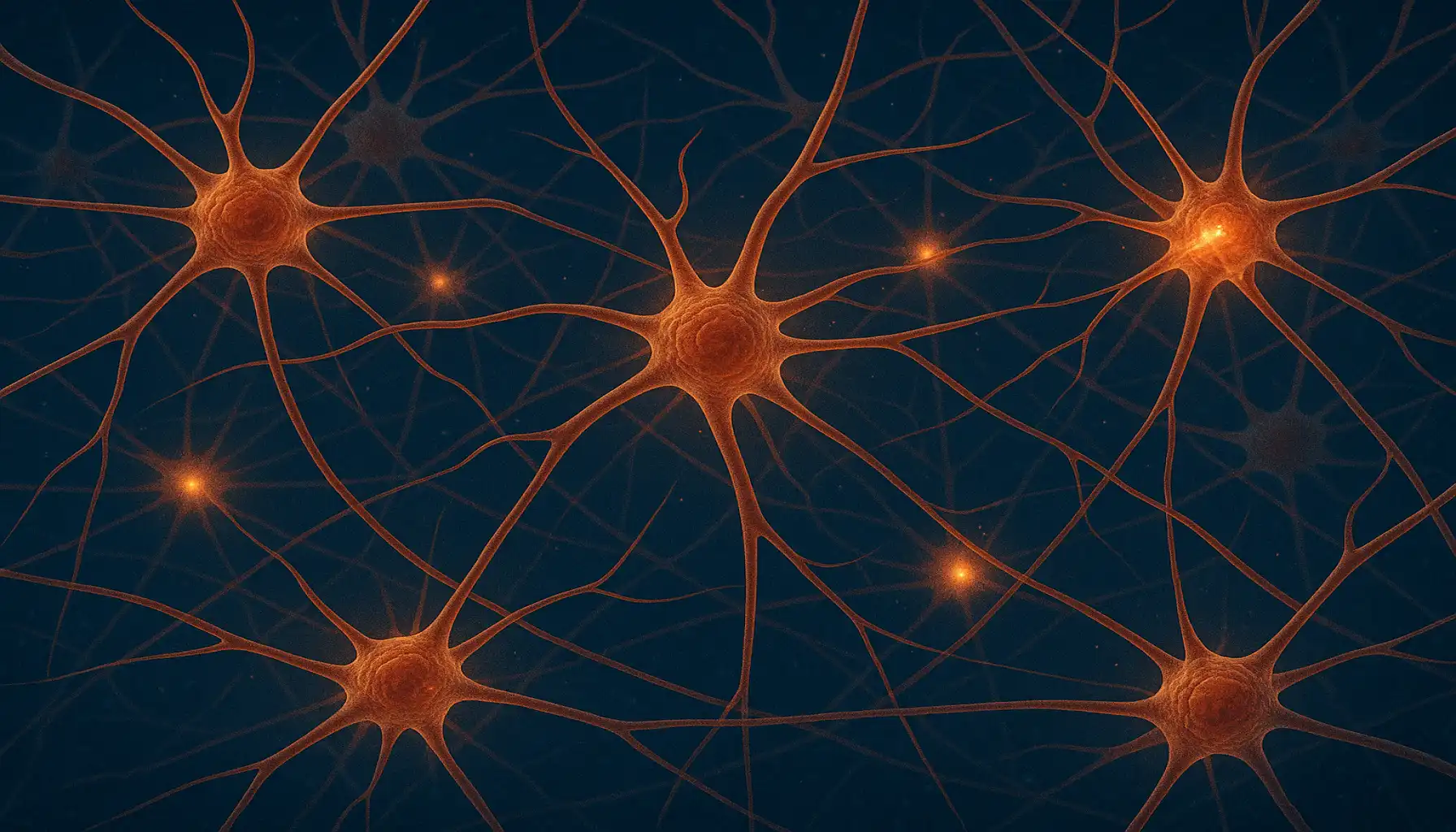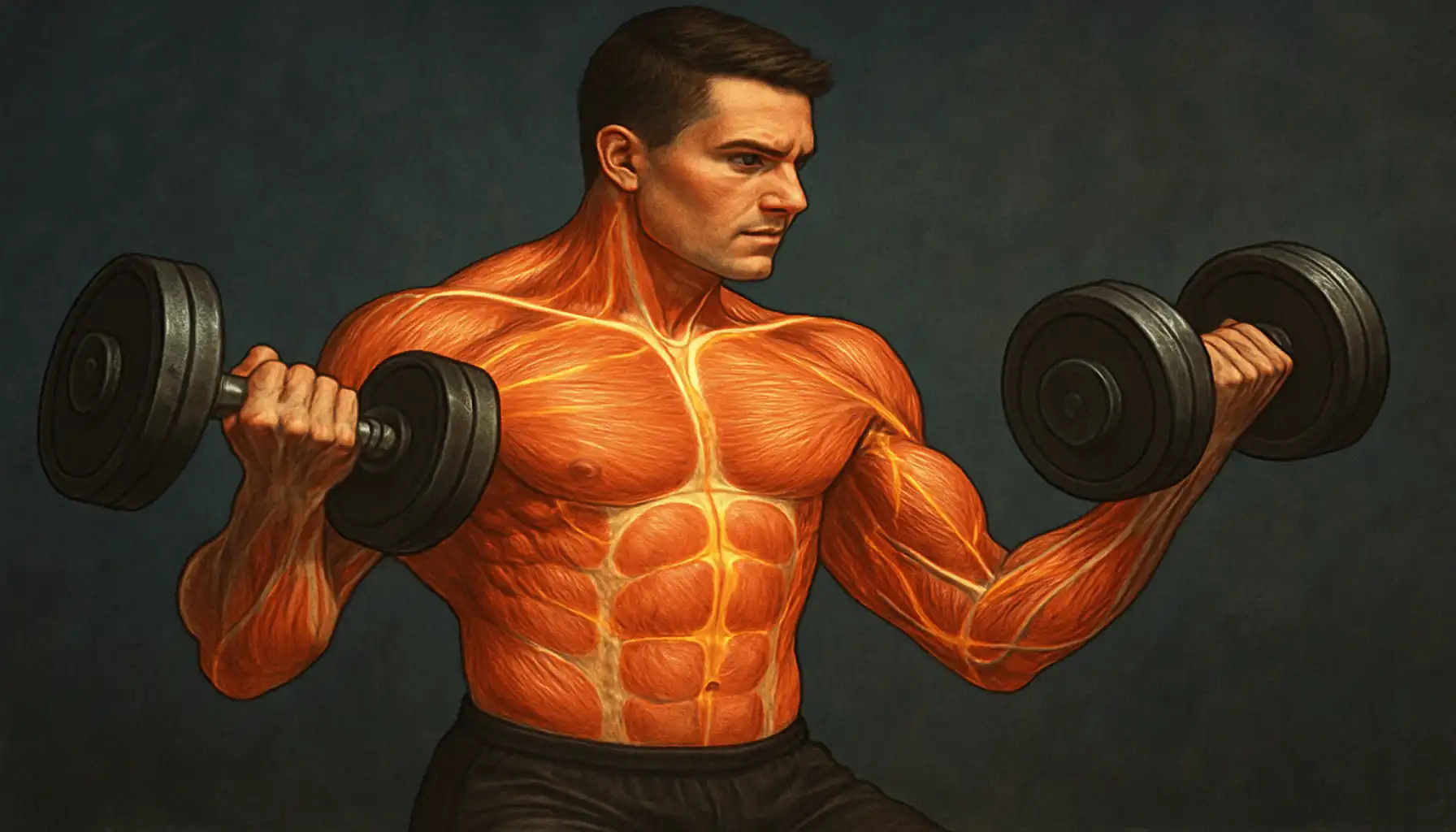Contents:
Many people wonder, “is the brain a muscle or an organ”, due to its ability to be exercised and grow. The brain is not a muscle. It doesn't know how to contract or relax like our arms or legs. But it is a very important and complex organ that weighs about 1.3-1.4 kilograms and looks like a large soft nut.
The brain serves as the central processing unit for all cognitive, emotional, and physical functions.It never rests, even when we are asleep – it still works, sorting out information and preparing for a new day. Check the huge number of our games for the brain!

What is Our Brain Made of? Neurons and Glial Cells
The fundamental question often posed in biology class is, is the brain an organ or a muscle? Let's see the explanation.
Our brain consists of two main types of tiny cells that work together.
Imagine that your whole brain is a huge network. So, neurons are like tiny cells and wires in this network.
What are they doing? The cell which transmits the signal from the brain to the muscle is called a motor neuron. Neurons transmit the information. They are connected to each other by sending rapid electrical and chemical signals. These signals are our thoughts, body commands, memories and emotions. When there is a tear or injury in muscle nerves send messages to the brain
What do they look like? Each neuron has a body, where its control center is located, and many "handles" or "branches". Some "branches" receive messages from other neurons, and one long "branch" sends the message further.
What happens when you study? When you learn something new or train, the neurons begin to "communicate" with each other in a new way, creating new "paths" or strengthening old ones. The more often you use a certain path, for example, you repeat foreign words, the wider and stronger it becomes.
More about the brain: Left and Right Brain: Fact vs. Fiction.

Glial Сells: "Helpers" and "Builders"
If neurons are lines, then glial cells are like employees of a telephone company. They used to be considered just the "glue" that holds neurons together, but now we know that they are much more important. The common question, "is the brain considered a muscle," arises from popular understanding of neuroplasticity and cognitive training.
What Are They Doing?
They support the neurons: They give the neurons food and oxygen, and remove the "garbage" after their work.
Protect: They protect the brain from harmful substances and diseases.
They help the "wires" work faster: Some glial cells wrap around the "wires" of neurons (axons), doing something like insulation. This allows the electrical signals to run much, much faster
They affect the learning process: Scientists are now learning that glial cells also play a big role in how we learn and remember. It helps neurons to form and to strengthen their connections.
How does the brain generate more force in a muscle if someone is lifting something really heavy? When lifting something very heavy, the brain generates more force in a muscle by recruiting a greater number of motor units, especially larger, more powerful ones, and increasing their firing rate, sending more frequent and synchronized signals to the muscle fibers.
So, the brain is not just a collection of neurons. It is a complex teamwork where neurons transmit information, and glial cells help and support them in every possible way.
Why do people say the brain is a muscle? It's because of its plasticity - the ability to rebuild itself, forming new neural connections.
More about the brain: Are You Left-Brained or Right-Brained? Take the Test!

How to "Train" the Brain to Increase Productivity? Examples
Although this is not true that the brain is a muscle it needs exercise and training. The more we use it, the better it works. Here are some simple ways to boost your brain:
Learn Something New
Foreign language: even if it's a few words a day, learning a new language forces the brain to actively work on new sounds, grammar, and words.
New hobby: learn how to play the guitar, knit, draw, or cook new dishes. Every new skill creates new brain connections.
A new route: try to go to work or to the store by a different route. This forces the brain to go through the new paths instead of following the usual ones.

Read and Explore
The phrase "how is the brain like a muscle?" often leads to a discussion of neuroplasticity, where the brain, similar to a muscle, can grow stronger, form new connections, and improve its capabilities through consistent mental exercise and learning.
Books: Reading books, especially of different genres, improves vocabulary, imagination, and concentration.
Learn new things: Watch documentaries, read articles on topics that are unfamiliar to you.
Solve the Riddles
Crosswords, Sudoku, and puzzles: These games perfectly train logic, memory, and attention.
Chess, checkers: Strategy games develop planning and foresight.
Move and Eat Right
Sports: Physical activity is very important for the brain. It improves blood circulation delivering more oxygen to the brain. Even a regular walk every day is beneficial.
Healthy eating: Eat more vegetables, fruits, fish, nuts. What's good for the body is good for the brain.
Get Enough Sleep
During sleep, the brain does not rest, but "sorts" information, fixes memories and removes "unnecessary garbage." Getting enough sleep (usually 7-9 hours for adults) is very important for it to work effectively.
Communicate
Talking, discussing, and solving problems with other people stimulate the brain, develop social skills, and help you see things from different angles.

How Is the Brain Related to Emotions and Memory?
The brain functions as a cognitive processor, as a complex emotional regulator, and as a memory consolidator. Emotions and memory are closely related to different parts of the brain.
Emotions
Amygdala (amygdala): this is a small part of the brain, similar to an almond. It's very important for our emotions like fear and anxiety. It is responsible for our reaction during the self-preservation instinct.
Frontal Lobes: these parts of the brain (at the front) help us manage our emotions, make decisions, and think about the consequences. It helps us to refrain from impulsive actions and instead make informed decisions.
Neurotransmitters: these are chemical messengers in the brain, for example, serotonin, dopamine. They affect our happiness and motivation. When their balance is disrupted, we may feel sad or anxious.
How does it work? If you are flinched by a loud sound, your amygdala will react quickly, even before you realize what is happening. It will "tell" the body to get ready. Then the frontal lobes will help you assess the situation and decide what to do.

Memory
Hippocampus: this is another important small part of the brain, similar to a seahorse. It helps us create new memories, especially those that we can consciously recall, for example, what you ate for breakfast or what you learned yesterday.
Different Types of Memory
Short-term memory: short-term memory holds information you're actively using in the moment, such as a phone number while you dial it.
Long-term memory: long-term memory stores past experiences, accumulated knowledge, and learned skills, like knowing how to ride a bike or recalling your first teacher's name.
Connection with emotions: emotions have a very strong effect on memory. We are much better at remembering those events that were associated with strong emotions (be it joy, surprise, or fear). The brain "marks" such events as very important and stores them more reliably. That's why you can remember your graduation well, but forget what happened at lunch a week ago.

As a result, the answer to the question " is the human brain a muscle " - no, it’s an incredibly complex and flexible organ. He's not a muscle, but it can and should be "trained" to make him work even better. And its close connection with emotions and memory makes us who we are, allowing us to learn, feel and remember.





